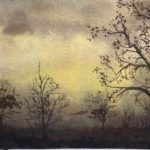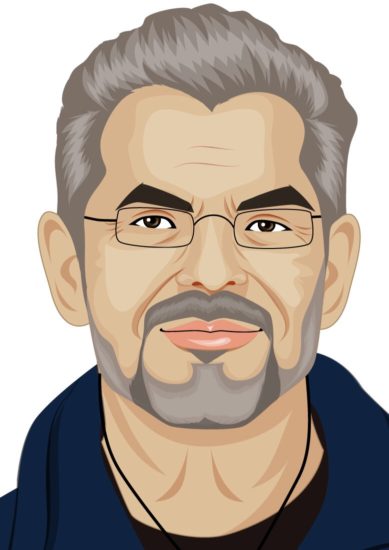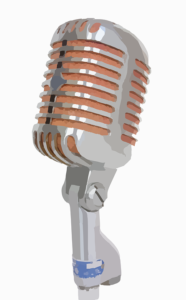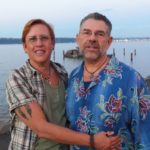Chapter 3 – Crossroad In Time
CHAPTER THREE—21ST CENTURY
 For the past seven-plus years I’d been a professor of history at Nevada State University in Las Vegas. Specifically, a professor of history in Middle Eastern studies specializing in the Second Temple period and early Christian era, 516 BC-395 CE. In the military, I’d taken a shine to military history and spent a lot of time deployed reading about the Greeks, Carthaginians, Romans, and Persians. The foundation for much of our military tactics and strategies today.
For the past seven-plus years I’d been a professor of history at Nevada State University in Las Vegas. Specifically, a professor of history in Middle Eastern studies specializing in the Second Temple period and early Christian era, 516 BC-395 CE. In the military, I’d taken a shine to military history and spent a lot of time deployed reading about the Greeks, Carthaginians, Romans, and Persians. The foundation for much of our military tactics and strategies today.
As the saying goes, “There are no atheists in foxholes,” and I was no exception. I’d seen the inhumanity of man up close, personal, and with all its horror. Fortunately, in that time I’d met and fallen in love with a wonderful woman of faith who’d kept me grounded and sane. Anna was the best thing that had ever happened to me. It was she who, without encouragement, yet encouraged me to go back to school and pursue my bachelor’s, master’s, and eventually my Ph.D. in history.
After a 20-year career in the military, Anna and I had planned on retiring in Las Vegas where I would teach, and she could finally put down roots. Less than a year after I retired Anna was diagnosed with cancer and died a lingering, painful death a year later.
Over the months I watched my wife’s suffering and begged Jesus every day to cure her. As was our custom since we’d both become Christians many years earlier, Anna and I prayed together every morning and night for her deliverance from this evil. I watched her suffering and began to wonder what a loving God was doing while we prayed, and she wasted away. How could God let this happen to such a loving and caring person; and the center of my life?
In an effort to understand and perhaps with an ulterior motive that my interest would put God on our side I began studying Christianity more deeply than I ever had before. I studied the origins of the Christian Church. Using every academic tool at my disposal I began peeling back the layers of myth and fact.
Meanwhile, cancer destroyed her from the inside out. Confusion and fear about her suffering turned to anger; and hatred. Did this God exist or was the world just being conned? Was Marx, right? Was religion nothing more than the opiate of the masses? The more I studied the more I became convinced by my research the whole Christian movement was nothing more than a big scam designed to give power to a core group of men beginning with Jesus of Nazareth and passed along to his so-called apostles.
Anna died four years ago. After her death, I became obsessed with finding the truth. Two years ago, after considerable research, I wrote a couple of magazine articles discussing my thesis which garnered quite a bit of flak from rabid right-wing, evangelical “Christians”. The interesting thing was, the more flak I caught, the higher my attendance got in classes. Then the offers began to come in from asking me to speak about my theories. I had no idea the mainstream media paid so well in honorariums. I guess deep down the American people knew it was all fake too. I was becoming somewhat of a celebrity spending a lot of time on MSNBC, CNN, and other progressive networks.
Everything came to a head though after a speech I gave at an alumni dinner where I apparently pissed off a number of wealthy “Christian” benefactors to the college. My dean suggested I either take a sabbatical and get a book written to explain my theories or start looking for another college. Since I didn’t have tenure yet, I decided to take him up on the sabbatical.
“We will be flying to Tucson in one of Doctor Staan’s’ private aircraft,” Nigel explained as the limousine pulled into the terminal at Henderson airport. “Please follow me.”
Now when Nigel mentioned a private aircraft, I expected a Beechcraft King Air or a small Learjet at the most but when we stepped out on the tarmac and walked toward a private Boeing 737—I was impressed. It didn’t suck to be a billionaire. How could I not have remembered Doctor Nicholas Staan was the genius behind Luminos Pharmaceuticals? It made sense Lynn would know him right away as it was Luminos that developed the Esteghlal procedure. She’d been using the procedure for over a year now and the results had been amazing. Though she was eight years older than me at 55 she looked and was as healthy as she had been at 25.
Esteghlal was the wonder procedure the world had been looking for to help people stay young and healthy. Introduced on the market several years ago it was an instant success. After centuries of searching for the fountain of youth, it seemed Dr. Nicholas Staan had found it. Once grossly obese Americans were now not only young, but they were also fit. The procedure not only helped people look younger it also helped them lose weight and increased lean body muscle as well. Incredibly after a couple of weeks on the program, the user not only had low body fat; they’d even have six-pack abs. Esteghlal seemed to roll back the years and the overall health and fitness of the user seemed to roll back to when the subject was in their mid to late 20’s. Billions of dollars had been spent over the years on anti-aging pills, creams, natural and plastic surgery in the quest for youth. Through Esteghlal and Dr. Staan the fountain of youth seemed to be a reality.
The interesting thing, too, was that in the two years Esteghlal had been on the market there had been no side effects, no scandals, nothing irregular. It was so safe the US military was using it for their troops. Luminos Pharmaceuticals had gone from an obscure mid-western drug company to a multi-national, multi-billion-dollar company almost overnight. And at the helm of this phenomenon was Nicholas Staan. I was surprised at how once Lynn reminded me of who Doctor Staan was how much I remembered about him and his company. But this Abaddon thing…
The pilot’s voice came over the loudspeaker asking us to fasten our seatbelts. Nigel motioned me into a large leather chair about the size of a Lazy Boy and showed me the seat belts. The cabin’s interior was custom decorated with teakwood, leather, and crushed velvet everywhere. The Luminos Pharmaceutical logo prominently displayed on the back wall of the cabin.
A flight attendant appeared out of the aft galley. She was pretty in her short dress and bouffant hairdo, she reminded me of a 1960s-era flight attendant you might see in an old James Bond film. “Would you care for a scotch professor?” she cooed.
The smell of her perfume reminded me of my wife Anna. “You’re wearing Estee Lauder Azure perfume,” I said softly.
“Why yes sir, how did you know”? She asked, a teasing smile forming at her lips but a puzzled look on her face.
“My wife loved that fragrance.” I inhaled deeply. In my mind’s eye, I could see Anna’s face. Her long black hair, deep brown eyes, and perfect nose and mouth. I shook off the thought, straightened up, and said, “Yes, I will have a scotch; on the rocks, with a splash of soda.”
The flight attendant saw my distant look and decided not to pursue the conversation any further. “Yes sir, right away.” She turned and sashayed back to the galley. A moment later she returned with my drink. Thanking her I took a sip and fell back into my thoughts, determined not to think of Anna.
I concentrated on Doctor Staan, what more did I remember? As I recall he’d grown up on the streets somewhere in Italy. His mother was murdered by a gang of thugs when he was quite young. Rumor had it for a while he dealt illegal drugs until he was adopted, more-or-less, by a local businessman. He gave the boy direction and became a father figure to Staan. The young man went back to school, finished top in his class, and received several scholarships. If I remembered correctly, he was a graduate of MIT. He went to work almost immediately with Luminos as a chemist and within a few years, he’d developed the Esteghlal procedure. Shortly thereafter he rose from chemist to president and CEO of the corporation.
I took another sip of the exceptional scotch. Damn this was good, I thought. As one would expect there were a lot of rumors and innuendo about him, as with anyone who rose to prominence so quickly.
Still a young man and single, there were rumors about his lifestyle. As I recalled some reports said he had Viagra running in his veins and wasn’t too picky about who he shared his affections with. In fact, it’s said he may have slept his way to the top with the former CEO of Luminos then blackmailed him. But those were all rumors, mostly created by the yellow journalists from the UK and on racks at grocery store checkouts. Nothing, and I mean nothing, was official or truly public.
About a year ago there was an archeological dig in western Turkey. A group out of Chicago was supposed to have found the famous Gate to Hades. A couple of students and a college professor disappeared, and once again the internet rumor had it Staan or Luminos may have been involved.
Thinking about that incident raised the hackles on the back of my neck. Strange, I hadn’t had that feeling since the last time I was on a combat mission and was almost greased by an improvised explosive device in Afghanistan.
The jet rotated and left the runway while I was running through that last experience with the IED. I looked out at the lights of Las Vegas; the Strip Fremont Street—the entire valley lit up like a theater marquee. I don’t know if it was the thought of the IED or what, but I had a feeling come over me that I wouldn’t see this view again for a long time.
It was just me in the cabin now. Nigel was upfront in the cockpit and the flight attendant was somewhere in the back. I took a closer look at the cabin. Teakwood trim with gold inlay, leather couches, and chairs spread throughout the cabin. The décor reeked of money. Money provided by Eseghlal and Luminos Pharmaceuticals and a lot of satisfied customers.
The opulence reminded me Staan’s hobby was collecting Middle Eastern antiquities. Specifically, Doctor Staan was interested in early Christian history. I’d heard through the grapevine he’d been quietly acquiring early Christian relics, writings, and antiques. As a billionaire he had access to items I could only dream about; he must have some collection, I thought. I do hope he’ll share his collection with me. I may be able to use some of them for my book. The thought of getting my hands on some of those early relics and writings was almost too exciting to think about. But true to form as the jet climbed to altitude an old habit, I’d picked up in the Army kicked in and I began to doze off.
The slight nudge of the landing gear returning to the runway at Tucson International airport brought me out of a dreamless sleep. As we taxied, I reflected on my ability to fall asleep so quickly. I’d been like that since Ranger school. After weeks of food and sleep deprivation I could fall asleep just about anywhere. I’ve been accused of being able to sleep on my feet. It’s not a bad thing really as it meant less sleep at night and more productive time. I’d seen passengers on previous flights quite concerned about me—they thought I had narcolepsy. I smiled at the thought of passengers thinking I’d died or something.
The airplane taxied to the executive terminal and I looked over at Nigel who had come out of the cockpit and was studying me. “Did you have a pleasant sleep sir”? He asked.
“Yes, thank you, Nigel. I don’t have any problems sleeping on planes.”
“Yes sir, for a moment I was a bit concerned until I saw you were breathing normally.”
I smiled. “It’s an old trick I picked up in the Army.”
The jet came to a halt, the pilot shut down the engines, and began his post-flight checks. The flight attendant came back into the cabin and escorted us to the passenger door. “I hope you had a pleasant flight Professor.” She said smiling.
“I did, thank you very much…”
“Ann,” she came back.
It figures I thought, smiling at her and stepping out into the desert evening. It had rained recently, and the smell of the creosote bush brought more memories. I could just make out the Tucson mountains and Babacobari Peak to the south. Anna and I had lived in Tucson years ago while I did a short tour with the Air Force as a liaison officer. We both loved this town so much. We especially loved it after the rain.
My thoughts were interrupted by Nigel, “Sir, if you’ll wait inside the terminal, I’ll bring the limousine around front.” He was carrying my gym bag and without waiting for an answer jogged on ahead of me.
The executive terminal was as I remembered it. The operations desk on the right as I came in, lounge area on the left, and television toward the front of the building. Anna and I owned a plane in those days, and we spent a lot of time here. It was at a time when we were joined at the hip, inseparable and the terminal brought back good memories. I stepped out the back door and looked out at the little café just outside. It was closed now but back then we used to hang around the café and meet friends there. We loved Tucson and we were convinced we’d retire there. But like most of our career and life, I was transferred back to Fort Bragg just before retirement. Rather than get the teaching job I’d hoped for at the University of Arizona I was offered a job in my hometown, Las Vegas.
Then Anna caught cancer. God, I thought. God, why did you take her from me! I could feel the tears welling in my eyes as Nigel pulled up in the limo. I hurried and rubbed my eyes free of the tears as he jumped out and ran to open my door.
“Don’t you just love the smell of the desert after a rain,” I said to him as I sat down in the back seat?
“Yes sir. It does grow on one,” he said closing the door.
© Keith Shafer 2003

I’m officially retired after over 40 years of working with the US military in one way or another. My bride of 45 years and I settled into a nice home in Fredericksburg, Texas, USA, and are enjoying the many events, organizations, and attractions the Texas Hill Country has to offer. I enjoy urban sketching, watercolor painting, dabble in writing, and do an occasional voice acting gig.
Tagged with: aethist • CNN • crossroad in time • MSNBC • second temple period
Filed under: Crossroad In Time
Like this post? Subscribe to my RSS feed and get loads more!





Leave a Reply